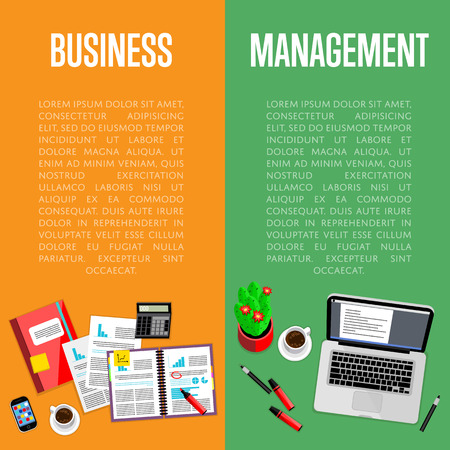Introduction to Time Management in UK Logistics
Effective time management stands at the heart of successful logistics operations, and this is particularly true within the UK’s fast-paced and highly regulated supply chain environment. British logistics teams contend with a unique set of challenges—from unpredictable weather conditions and fluctuating fuel costs to stringent compliance requirements and congested transport networks, especially in urban centres like London, Manchester, and Birmingham. These factors make it essential for logistics professionals to optimise every minute, ensuring goods move seamlessly from point A to point B while minimising delays and operational costs. In this context, robust time management practices do not just enhance productivity; they also play a critical role in maintaining service reliability and customer satisfaction. As competition intensifies and customer expectations rise across the UK, logistics teams increasingly turn to specialised software solutions designed to meet their specific needs. By embracing digital tools tailored for the British market, companies can better navigate local challenges, streamline workflows, and maintain a competitive edge in an ever-evolving sector.
Key Features UK Logistics Teams Look For
When evaluating time management software for logistics teams in the UK, several key features stand out as essential. British logistics operations are shaped by strict regulatory requirements, unique transport networks, and a high demand for reliability and responsiveness. Below, we examine the main functionalities UK-based organisations prioritise when choosing their preferred solutions.
Regulatory Compliance
UK logistics teams operate within a stringent legal framework, particularly concerning working hours, driver safety, and data privacy (GDPR). As such, time management software must be able to:
- Automatically monitor and record employee hours in line with Working Time Directive requirements
- Generate reports suitable for audits by UK authorities
- Support secure data handling compliant with GDPR regulations
Integration with British Transport Systems
Seamless integration with local transport systems is a major consideration. Leading software options offer compatibility with:
- National Rail timetables and disruption alerts
- Highways England’s roadwork and traffic updates
- APIs for leading British courier services (e.g., Royal Mail, DPD UK)
Localised Customer Support
Logistics teams value responsive support that understands the nuances of the UK market. Preferred providers typically offer:
- UK-based customer service teams available during British working hours
- Comprehensive onboarding tailored to British regulations
- Ongoing training sessions aligned with local operational needs
Summary of Essential Features
| Feature Category | Description | Importance to UK Logistics Teams |
|---|---|---|
| Compliance Tools | Monitoring hours, GDPR adherence, audit reporting | Critical – ensures legal operation and avoids penalties |
| Transport Integration | Links to national rail, highways updates, courier APIs | Highly valued – boosts efficiency and reduces delays |
| Local Support Services | Onshore helpdesk, tailored onboarding/training | Essential – provides reliable assistance and swift resolution of issues |
| User Interface Localisation | Pound sterling settings, British English language support, familiar date/time formats (DD/MM/YYYY) | Important – increases ease-of-use for UK-based staff |
The Importance of Cultural Fit
Apart from technical capabilities, UK logistics teams frequently consider cultural compatibility. Solutions that use British terminology, accommodate regional public holidays, and understand local business practices often stand out in procurement processes.
Conclusion: Meeting the Specific Needs of UK Operations
Selecting a time management solution goes beyond generic functionality; it demands alignment with the operational realities of British logistics. The most successful platforms balance compliance, seamless system integration, robust local support, and a user experience attuned to the UK context.

3. Popular Time Management Software in the UK Market
When it comes to time management software tailored for logistics teams in the UK, several solutions have established a strong presence by addressing local business needs, regulatory requirements, and cultural nuances. Here’s a brief overview of some leading platforms used widely across British logistics operations.
Sage HR
Sage HR is a popular choice among UK logistics firms due to its integration with Sage’s well-established payroll and accounting systems—tools already trusted by many British businesses. Its shift scheduling, leave management, and compliance modules are particularly valued by local teams managing large workforces across multiple depots.
BigChange
BigChange is a Leeds-based platform designed specifically for field service and logistics companies. It offers real-time job tracking, resource allocation, and digital timesheets—all features that resonate with the fast-paced nature of UK transport and delivery sectors. Local companies appreciate its compliance tools for Working Time Directive (WTD) regulations and seamless integration with mapping solutions familiar to UK users.
Toggl Track
Toggl Track has seen adoption among smaller logistics outfits and subcontractors seeking simplicity and flexibility. With its intuitive interface, Toggl helps British logistics managers monitor team productivity across distributed locations, supporting both office-based staff in London and drivers covering rural routes in the North.
Microsoft Teams with Shifts
Many UK enterprises leverage Microsoft Teams combined with the Shifts add-on to coordinate schedules and time tracking. Given the widespread use of Office 365 in British business environments, integrating Shifts allows for efficient rota planning, absence tracking, and instant communication within logistics teams—features vital for operations spanning multiple sites or regions.
Other Noteworthy Mentions
UK logistics teams also utilise solutions like Deputy (for advanced rota planning and compliance reporting) and Harvest (for detailed project time tracking). These platforms are praised for their adaptability to British working practices, robust customer support based in the UK or Europe, and GDPR-compliant data handling.
Choosing What Works Best Locally
The selection of time management software often comes down to how well it fits specific operational needs—whether that’s handling complex driver schedules around London’s Low Emission Zones or ensuring compliance with national employment laws. By focusing on platforms trusted by local businesses, UK logistics teams can streamline workflows while staying attuned to regional requirements.
4. Comparative Analysis: Strengths and Weaknesses
For UK logistics teams, selecting the right time management software is a strategic decision shaped by operational needs, local regulations, and cultural expectations around efficiency. To provide practical insight, we have compared four popular options: Deputy, RotaCloud, When I Work, and Shiftboard. The analysis focuses on usability, cost-effectiveness, scalability, and customisation within the context of the UK environment.
Usability
| Software | User Experience | Learning Curve | Mobile Functionality |
|---|---|---|---|
| Deputy | Intuitive interface with clear navigation; well-suited for mixed skill levels | Low – most UK-based users adapt quickly | Comprehensive mobile app; supports remote field staff |
| RotaCloud | Designed with UK SMEs in mind; straightforward schedule editing | Very low – ideal for rapid onboarding | User-friendly mobile version; basic notifications included |
| When I Work | Slick design but some US-centric terminology requires adjustment | Moderate – some adaptation needed for UK-specific settings | Strong mobile features; real-time alerts effective for logistics shifts |
| Shiftboard | Robust but can feel heavy for smaller teams; best for large operations | Steep – more training required for full adoption in UK context | Mobile app available; bulk shift management is strong point |
Cost-Effectiveness & Local Support
| Software | Pricing (UK Relevance) | Support Availability (UK Time Zone) | Pound Sterling Billing Option? |
|---|---|---|---|
| Deputy | Mid-range subscription; discounts for annual commitment; VAT handled cleanly | Email/phone support aligned to GMT hours; active online community forum | Yes – full compliance with UK invoicing standards |
| RotaCloud | Competitive monthly rates tailored for small to medium UK businesses; free trial offered | York-based support team during UK business hours; helpful onboarding resources | Yes – pricing transparent in GBP from the outset |
| When I Work | A bit pricier due to conversion fees; add-ons increase total cost for larger teams | Mainly US-based support; email responses sometimes delayed for UK queries | No – all billing processed in USD, which may complicate accounting for some firms |
| Shiftboard | Tiered enterprise pricing; less transparent and often above SME budgets in the UK market segment | Global support but not always synchronised with UK schedules; implementation help available on request | No – contracts typically billed in USD or Euros |
Scalability & Customisation for the UK Market
| Software | Easily Scales? | Bespoke Features (UK Regulations) | Integration with Local Systems |
|---|---|---|---|
| Deputy | Handles both small depots and national fleets well | Covers Working Time Directive & GDPR compliance out of the box | Smooth link to Sage, Xero, and other common UK payroll tools |
| RotaCloud | Inegrates easily as teams grow up to mid-size companies | Payslip and holiday accrual rules reflect typical UK employment contracts | Natively links with BrightPay and other local HR/payroll systems |
| When I Work | Adds users readily but complex workflows require manual setup above 100+ staff | No pre-built templates for UK-specific overtime or rest periods | Lacks direct integration with widely-used British payroll solutions |
| Shiftboard | Able to support multi-site organisations across the UK/EU region | Bespoke modules possible but involve extra consultancy costs | Bespoke API integrations available upon request – not plug-and-play with standard UK apps |
Main Takeaways for Logistics Teams in the UK Context:
- If immediate ease of use and reliable local support are priorities, RotaCloud’s simplicity and homegrown service edge ahead.
- If your operation spans multiple sites or requires advanced compliance tracking, Deputy delivers strong flexibility and legal alignment.
- Larger enterprises seeking deep customisation might consider Shiftboard’s breadth—albeit at higher upfront effort and cost.
- If seamless payroll integration in GBP is non-negotiable, Avoid platforms without native pound sterling billing or direct links to major British accounting software.
This comparative analysis underlines that while all solutions offer baseline scheduling functions, only some truly fit the unique regulatory landscape and operational rhythms of UK logistics. Teams should weigh each platform’s strengths against their specific scale, budget, and compliance demands before making a final decision.
5. Case Studies from UK Logistics Companies
When considering which time management software best suits the unique needs of British logistics teams, real-world examples provide invaluable insights. Below, we explore how several prominent UK logistics firms have adopted these digital tools and the tangible results they have experienced.
Case Study 1: Streamlining Fleet Operations at Northern Freight Solutions
Northern Freight Solutions, a regional haulage provider based in Yorkshire, implemented BigChange to overhaul their scheduling and fleet management. The team reported a 20% reduction in empty runs and improved driver punctuality thanks to automated job allocation and real-time tracking. The integration with their existing payroll system also saved administrative staff hours each week, contributing to both operational efficiency and staff satisfaction.
Case Study 2: Improving Warehouse Productivity at South Coast Warehousing
South Coast Warehousing, operating out of Southampton, chose Deputy for rota management and shift planning. Within months, absenteeism dropped by 15%, attributed to better visibility over shift patterns and mobile notifications for upcoming shifts. The seamless communication between floor managers and warehouse operatives fostered a stronger sense of teamwork, while compliance features ensured that working time regulations were consistently met.
Case Study 3: Enhancing Customer Service at Midlands Delivery Express
Midlands Delivery Express, specialising in last-mile deliveries across Birmingham and the West Midlands, adopted Toggl Track to monitor delivery route efficiency and staff utilisation. Managers used detailed reporting features to identify bottlenecks and redistribute workloads more fairly. As a result, on-time deliveries increased by 12%, and customer feedback scores rose notably within three months of deployment.
Lessons Learned Across the Industry
The common thread among these British logistics companies is the measurable improvement in both operational metrics and employee morale following software adoption. While each firm had unique challenges—be it complex rotas or fleet inefficiencies—the right digital solution yielded quick wins and long-term gains. These case studies demonstrate that investing in UK-preferred time management tools is not merely about digitisation but about fostering a culture of accountability, adaptability, and service excellence within the sector.
6. Recommendations and Best Practices for UK Teams
When it comes to selecting and deploying time management software within British logistics teams, practical considerations and culturally-relevant insights are essential for long-term success. Here are some recommendations and best practices tailored specifically for UK organisations.
Prioritise Local Compliance and Data Security
Ensure the software aligns with UK data protection laws, such as GDPR. Look for vendors that offer robust data security features, local server hosting options, and clear compliance documentation. This not only protects your business but also reassures clients concerned about privacy and regulatory adherence.
Seek Integration with Existing UK-Focused Tools
British logistics firms often rely on legacy systems or region-specific platforms (such as Sage or Transport Management Software tailored for the UK market). Opt for solutions that offer seamless integration with these tools, reducing disruption and preserving established workflows.
Emphasise User Adoption Through Clear Communication
Successful rollouts depend heavily on team buy-in. Communicate the benefits in plain English, using relatable examples relevant to day-to-day logistics work in the UK. Provide hands-on training sessions, ideally led by super-users within the team, to build confidence and encourage uptake.
Leverage Local Support and Community Resources
Select vendors with a strong UK presence—local support centres, British user groups, or dedicated account managers familiar with the nuances of UK logistics operations. This ensures timely assistance and advice that resonates with your team’s unique challenges.
Start Small and Scale Gradually
Pilot the software with a single depot or team before full-scale implementation. Gather feedback from frontline users, making adjustments based on their experiences. This incremental approach helps prevent costly missteps and builds momentum through early wins.
Measure Impact Using Relevant KPIs
Set clear benchmarks aligned with British logistics priorities—punctuality, route efficiency, overtime reduction, and regulatory compliance. Regularly review progress against these KPIs to ensure your chosen solution is delivering tangible value.
By focusing on these UK-centric recommendations and best practices, logistics teams can confidently select time management software that not only fits their operational realities but also empowers staff at every level to deliver more reliable, efficient service across Britain’s complex supply chains.


